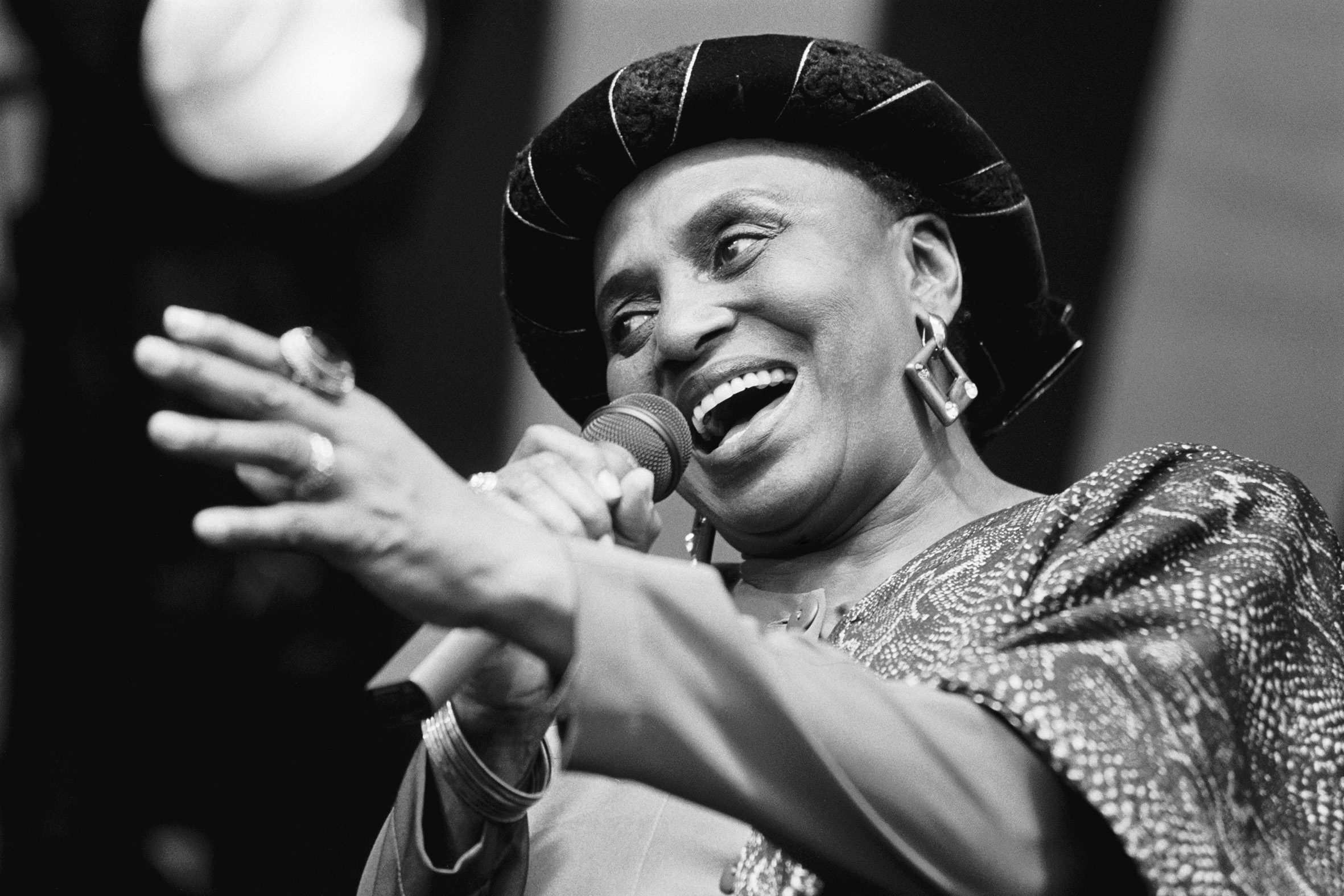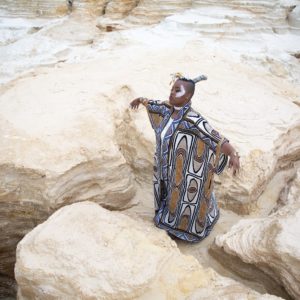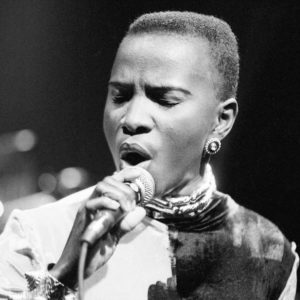Somi takes on Miriam Makeba’s mantle
The musician’s new album displays an intimate awareness of the icon’s life and legacy, demonstrating a deft and delicate handling of not only Mama Africa’s music but her politics, too.
Author:
25 April 2022

Miriam Makeba transitioned into the delicate place of ancestors in 2008. Struggling to think about death and Makeba in the same sentence, there is consolation in African philosophy’s defiant logic of death as a form of the everlasting, a shift in relations rather than an end.
When many in South Africa and the global community Makeba called home were left to figure out how to coddle unspeakable grief and the physical loss of this colossal figure, Ugandan American-born musician, composer, playwright and actor Somi gathered Makeba’s people through song. She organised a tribute in New York as a way of making sense of her personal, political and cultural relationship with Makeba’s life and legacy. In doing so, I think of this moment as umlindelo, the candlelit communal gathering of grievers needing to share and hold the weight of death together.
Makeba’s friendship, musicality and love for a borderless free Black world was accounted for by the presence of longtime kindred spirit, friend and collaborator Harry Belafonte, Paul Simon and phenomenal pianist Randy Weston. Much of Somi’s insistence on a memorial tribute for Makeba had to do with the unacceptable and deafening silence that surrounded her death. Its invisibility did not make sense with who Makeba was in the world and her contribution to culture. The world should have stopped to hear the global wailing cries and intimate sobs. It should have radically observed her transition with the level of generosity that Makeba exemplified towards others in her many cat-like lives during her forced exile.
Related article:
Somi’s orchestration of this tribute also came from having known and understood Makeba’s social roots. Listening to her music formed part of the fabric of her upbringing. In an interview following her show in Pretoria, I asked how she came to Makeba’s music and she responded by saying that she was almost born into her voice. Somi picked up on Makeba’s ability to move through culture and politics and carve out her own pronunciations and proximity to jazz and southern African musical practices.
Reflecting on her archival process and research about Makeba, Somi said: “I started by looking at her catalogue and the more I learnt, the more I realised that I didn’t know. Surely, then, the majority don’t know?”
Stepping into Makeba’s world
An understanding of Makeba’s cultural, political and social context inspired Somi’s original musical theatre production Dreaming Zenzile, which sought to portray and honour her life. It was recently performed at the Apollo Theater in New York leading up to the release of her album, titled Zenzile: The Reimagination of Miriam Makeba.
Creating this album, Somi “had been looking to [Makeba] as a compass and spiritual guide” in the process of “a meditation of her legacy”. This music reminds us that Makeba belonged to all of us who held on to her love for freedom and justice. And it sanctions any forgetting about this timeless human being who lived boldly through the theft of many unspeakably important parts of life such as joy, worship and community.
On Zenzile, Somi takes two particularly masculine Xhosa songs, Mabhongo and Kwedini, and gives them a feminine intonation without drowning out the rage, courage and group pride inherent in them. Much like Makeba’s infamous performance style that stayed on the edges of individuality and originality, Somi isn’t attempting to walk in the footsteps of Makeba’s every print but she expands this footprint by multiplying Makeba’s presence in our lives through song.
Her work throughout the album exemplifies that the voice is an instrument and conduit of human experience. She shows that the best voices are loyal to emotion and to the truth of people, histories and lives that inform a song. Of course she can sing. But her brilliance extends beyond that and rather lies in her delivery and an intimate knowing of Makeba’s politics and cultural roots that influence how Makeba sang.

This is clearly expressed in Nonqonqo featuring Ladysmith Black Mambazo. Reflecting on this collaboration, Somi said: “I was so grateful to be able to step into the history of their sound.” Their commitment to isicathamiya and mbube vocal styles and Somi’s commitment to language produces a song that sings in the register of South Africa’s struggle and liberation sound and performance.
When we spoke about the challenges of singing in isiXhosa and the pressure of language, there was an admission of how intimidating it was to enter the specific world of a language that clicks. Somi is open and vulnerably confident about the linguistic imperfections in the album, not as points of failure but of what she called an “exercise in surrender” and an “archive moment”.
One of the lessons of our oral tradition is that we become by doing. Somi’s crossover into isiXhosa phonetics allows her to walk in Makeba’s infamous musicality in other languages. Makeba could sing in Swahili, French, Arabic, Portuguese through her thick nguni accent, totally commanding and co-opting foreign stages with the confident character of her voice and perfect imperfections, too.
Carriers of a tradition
This album invites Black South African women musicians who are carriers of Makeba’s tradition of individuality, community and feminine agency into its collaborative spirit. “Thandiswa Mazwai and Msaki are that, I can hear and point out that they are coming from a particular lineage politically,” said Somi.
Milele is a stunning call of Makeba’s clan praises delivered in Mazwai’s militant voice, which reminds us of Makeba’s revolutionary matriarchal figure status in Africa. Pianist Nduduzo Makhathini represents Makeba’s improvisational side. As a cultural worker using improvised music as an outlet of southern African spiritual forms, Makhathini’s gentle intervention in Mabhongo channels Makeba’s devotion to music as a medicinal art form. Angélique Kidjo and Seun Kuti represent Makeba’s pan-African roots and friendship. Gregory Porter features in a gorgeous duet, Love Tastes Like Strawberries, marking an important relationship that Makeba had with the diaspora through her friendship and collaborations with Belafonte.
The keys across this album in different moments pay homage to South Africa’s marabi tradition, most notably in a track titled Hapo Zamani. Hearing those distinct chords is overwhelmingly moving, containing both the histories of suffering and histories of joy that formed marabi. Through Makeba’s generation the cries and insistent “make-do” ethic of Black people in South Africa make their way across the same oceanic doors of no return that turned Africans into property. And Somi returns the remnants of these chained histories, memories of exile and otherness with unsettling pride and confidence in the humanising legacy that Makeba left us. Pata Pata brings a sombreness that feels like a feeling that still sits in the background of Makeba’s original dance version. Pata Pata is an unbridled cry for optimism and an example of dance as a learned strategy of survival and part of the toolkit of Black life everywhere.
Related article:
Makeba’s life is a product of the desires and hopes of those who named her “Zenzile”, a self-willed doer and engineered figure of resistance. It is not always about the tragedy of apartheid’s chokehold over her life but the triumph of her defiant improvisation and ability to make a life in spite of forced displacement.
For Somi, “she was a woman of the world. I leaned on her life story. She challenged what an African woman should be. Her life’s a lesson on agency.” It is also a lesson on how to hold on to freedom from an African feminist position. She gave us confidence to become the liberation we seek simply by committing herself to a life of truth. I often think of Makeba as an honorary ancestor of African feminists because of her commitment to the freedom and constant appeal to African humanist ethics as a response to conquest through song.
Zenzile: The Reimagination of Miriam Makeba is about the spirit of community. It honours Makeba’s mirror-like status for truth and freedom seekers. It is an ode to her generosity, strong social roots, group pride, pan-Africanism and unwavering embodiment that beauty is us.


